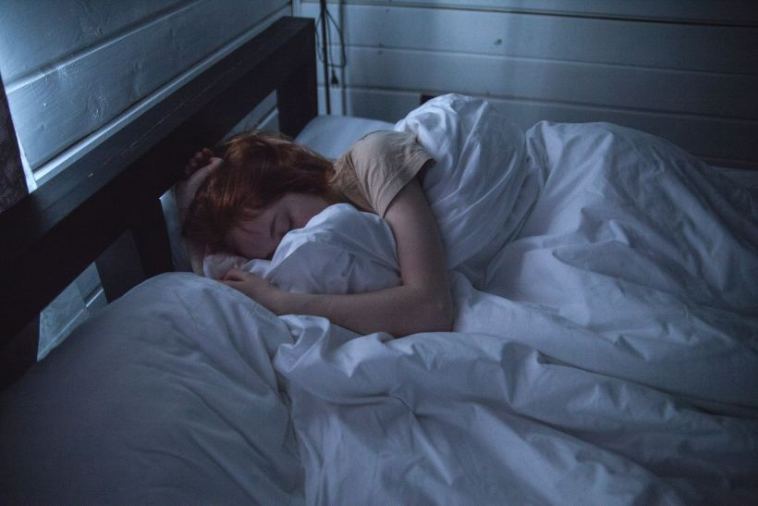- Like
- SHARE
- Digg
- Del
- Tumblr
- VKontakte
- Flattr
- Buffer
- Love This
- Save
- Odnoklassniki
- Meneame
- Blogger
- Amazon
- Yahoo Mail
- Gmail
- AOL
- Newsvine
- HackerNews
- Evernote
- MySpace
- Mail.ru
- Viadeo
- Line
- Comments
- Yummly
- SMS
- Viber
- Telegram
- JOIN
- Skype
- Facebook Messenger
- Kakao
- LiveJournal
- Yammer
- Edgar
- Fintel
- Mix
- Instapaper
- Copy Link
Introduction
If you’re struggling with insomnia, you’re not alone. According to the National Sleep Foundation, about 30% of adults in the U.S. experience occasional insomnia, while 10% have chronic insomnia.
While there are many prescription and over-the-counter medications available to treat insomnia, these drugs can often come with unwanted side effects. If you’re looking for a more natural way to address your insomnia, try one of these four ideas.
1. Cognitive Behavioral Therapy (CBT) for Insomnia
If you have persistent insomnia, you may be wondering what you can do to get relief. While there are many potential causes of insomnia, one treatment option that can be effective is cognitive behavioral therapy for insomnia (CBT-I).
CBT-I is a type of therapy that helps to change the way you think about sleep and teaches you how to improve your sleep habits.
Some of the techniques that may be used in CBT-I include setting a regular sleep schedule, creating a relaxing bedtime routine, and making changes to your diet and exercise habits.
In addition, CBT-I can help to identify and address any underlying psychological issues that may be interfering with sleep.
2. Get a Good Night’s Sleep
For many people, a good night’s sleep is a necessary part of a healthy lifestyle. However, for those suffering from persistent insomnia, getting a full night’s rest can seem like an impossible task.
There are a number of things that can cause persistent insomnia, including stress, anxiety, and certain medications. If you’re struggling to get a good night’s sleep, there are a few things you can try to help you get the rest you need.
First, establish a regular sleep schedule and stick to it as much as possible. This means going to bed and getting up at the same time each day, even on weekends. Plus, create a relaxing bedtime routine to help you wind down before sleep. This can include taking a warm bath, reading a book, or listening to calming music.
Third, avoid caffeine and alcohol in the evening, as they can interfere with sleep. Finally, make sure your bedroom is dark, quiet, and cool to create an environment that is conducive to sleep.
3. Stimulus Control Therapy for Insomnia
For some people, tossing and turning throughout the night is a regular occurrence. This can be frustrating and make it difficult to get a good night’s sleep. If you’re struggling with persistent insomnia, there are various things you can do to help improve your sleep hygiene.
One approach is known as stimulus control therapy for insomnia. This involves making certain changes to your sleep environment and habits in order to create an environment that is conducive to sleep.
For example, you may need to avoid using electronic devices in bed, establish a regular sleep schedule, and make sure your bedroom is dark and quiet. While these changes may not seem like much, they can make a big difference in terms of helping you fall asleep and stay asleep throughout the night.
If you’re struggling with persistent insomnia, give stimulus control therapy for insomnia a try. It just might be the key to getting the restful night’s sleep you’ve been longing for.
4. Progressive Muscle Relaxation for Insomnia
People who suffer from insomnia often find themselves feeling frustrated and helpless. There are a number of things that can cause insomnia, and it can be difficult to find the right solution. However, there are a few ideas that may help with persistent insomnia. One option is to try progressive muscle relaxation for insomnia.
This involves tensing and relaxing different muscle groups in the body, starting with the feet and progressing up to the head. This helps to promote relaxation and can be done in bed before going to sleep.
Another option is to use THC-P products. These products contain a small amount of THC, which has been shown to be effective in treating insomnia. However, it is important to talk to a doctor before using THC-P products, as they can interact with other medications.
Conclusion
If you suffer from insomnia, there is hope. There are many different treatments that have been shown to be effective, such as cognitive behavioral therapy (CBT), getting a good night’s sleep, stimulus control therapy, and progressive muscle relaxation. Give one of these therapies a try and see if it helps you get the rest you need.


